|
The book and digital publication Climate Justice Code: For artists, art workers, and arts organisations situated in the Global North is available now!
The writing process started off in Casco Art Institute's second Assembly for commoning art institutions, Our House is on Fire, in October 2019 where it was drafted by the editorial committee alongside the steering committee and further developed by all the participants of the Assembly, with the intention that art institutions and artists in the Netherlands and beyond adopt it. In the years following the drafting of the code, the Climate Justice Code Working Group realized the final publication through an evolving group of contributors. I was part of the working group in 2020 and I am grateful to those who endured this effort so it could be published and eventually put it into use. A free digital version of the publication is available HERE Colophon: In 2019, the CJC was initiated by a Casco steering committee (Annette Krauss, Wan Ing Que, Binna Choi, Yolande Zola Zoli van der Heide with Rosa Paardenkooper) and editorial committee (Platform BK’s Joram Kraaijeveld, Commons Network’s Thomas de Groot and Taru Aitola, Fossil Free Culture NL’s Teresa Borasino and Harriet Bergman, Code Rood’s Selçuk Balamir and artist Clementine Edwards). In 2020, the CJC was actively worked on by the following people: Alessandra Saviotti, Ama Josephine Budge Johnstone, Amy Pekal, Binna Choi, Carina Jansen, Clementine Edwards, the Community Economies Institute (Molly Mullen, Aviv Kruglanski, Leo Hwang, and Ana Inés Heras), Jessica Palalagi, Joram Kraaijeveld, Josina Calliste, Cannach MacBride, Marianna Takou, Nicole Jesse, Nish Doshi, Pau(la) Chaves Bonilla, Sina Ribak, Suzanne Dhaliwal, Valentina Vella, Wan Ing Que, Yolande Zola Zoli van der Heide, and Zoe Scoglio. In the framework of the Dutch Art Institute’s master’s program, within which Casco facilitated a 2020-21 study group, the following people also worked on the CJC: Amit Rai, Alexandra Martens Serrano, Csilla Klenyánszki, Dakota Guo, Elvis Krstulovic, Emmeli Person, Liza Rinkema Rapus, Marika Vandekraats, Mia van den Bos, and Raúl Silva. Since 2021, the CJC was worked on by the following people: Ama Josephine Budge Johnstone, Amy Pekal, Binna Choi, Clementine Edwards, Cannach MacBride, Marianna Takou, Nicole Jesse, Pau(la) Chaves Bonilla, Teresa Borasino, Wan Ing Que, Yolande Zola Zoli van der Heide, and Zoe Scoglio. The Climate Justice Code was published by Casco Art Institute: Working for the Commons and designed by Zhizhong Keene with Maxim Preaux in 2023. Texts where there is no author attribution given were co-written by the Climate Justice Code working group. The activity of Casco Art Institute: Working for the Commons is made possible with the support from the City Council of Utrecht, Arts Collaboratory, and many other practitioners in her/their ecosystem. Climate Justice Code © 2023 by Casco Art Institute, Climate Justice Code working group, and the authors: Teresa Borasino; Ama Josephine Budge Johnstone; Josina Calliste; Pau(la) Chaves Bonilla; the Community Economies Institute (Leo Hwang, Ana Inés Heras, Aviv Kruglanski, Molly Mullen); Nish Doshi; Clementine Edwards; Cannach MacBride; Jessica Palalagi; Zoe Scoglio. Climate Justice Code © 2023 by Climate Justice Code working group is licensed under CC BY-NC-ND 4.0. Sono passati 10 anni dall'idea alla stampa di 'Prendersi cura di noi: 30 anni al Brainstorm', un piccolo libro che raccoglie 30 anni di storia di Fusignano in provincia di Ravenna (dove sono nata), passata attraverso il Circolo ARCI Brainstorm. I testi e i racconti raccolti in questo libro ci ricordano che pare politica significa principalmente trovare una casa dove si impara facendo, collettivamente. Come mi ha raccontato Rita Podeschi che per 30 anni ha coordinato le ‘azdore’ in cucina: “Io me ne sono presa cura come una casa. Per me è stata come una casa comune.” Buon compleanno Brainstorm! ‘Prendersi cura di noi. 30 anni al Brainstorm’ A cura di Alessandra Saviotti Con testi di Francesca Bandoli, Mirta Battaglia, Giorgia Benassi, Luisa Calderoni, Roberta Cappelli, Ombretta Cortesi, Alberto Grandi, Giordano Graziani, Serena Mercatali, Maurizio Ortasi, Pasquale Ortasi, Nicola Pasi, Rita Podeschi, Nicola Pondi e Matteo Silvagni. Copertina: Riccardo e Nicola Pondi Foto: Maicol Testi Edizioni del Girasole 2023 Si può acquistare qui For the past few months, Gemma and I have been developing a series of guidelines for workshops in collaboration with the art mediators and the curators at Zuid. Boijmans Van Beuningen to explore different ways of thinking about the economy and its relation with our well-being.
We started with the question: 'How does it feel to receive something from a stranger?' and invited the users of the Hillevliet 90 in Rotterdam to answer. The outcome will be gathered on a mobile wall placed at the Hillevliet 90, and it will be one of the topics that will be proposed for RASL Summer Studio 2023 'Supporting Structures: Re-Imagining Ways to Wellbeing through the Arts and Sciences'. - This program is part of the collaboration between RASL (Rotterdam Arts and Sciences Lab) and Zuid. Boijmans Van Beuningen. This will come together in a Summer Studio in July 2023, Supporting Structures: Re-Imagining Ways to Wellbeing Through the Arts and Sciences. The first essay by Leigh Biddlecome on Art Düsseldorf magazine as part of the series related to 'Sustainability in the Art World' exhamines the economic theory of 'degrowth' and how it can be adapted to the art world thorugh its redefinition by artists. In her essay Leight mentions different case studies, among them Decentralising Political Economies and the Asociación de Arte Útil.
Full text HERE I am delighted to be spending two weeks in residency as part of thankyouforcoming in the French Riviera!
I am deligted to be invited as curator in residency in Nice, France, by thankyouforcoming a platform to devise, produce and mediate art projects, connecting contemporary art, society and citizens.
The first event organised by the director Claire Migraine is a one-to-one meeting involving the other curators that are in residency in December, Juliana Caffé and Agne Kolontaite. The programme of this year 'Gathering on Rehearsing Hospitalities' (Oct 5>8 2022) focuses on practices that deal with the redistribution of power, wealth, and resources within the art field and society at large. Together with Gemma Medina, we will introduce the evolution of the Asociación de Arte Útil, its archive, and the selection of case studies on display. We will present examples focused on the redistribution of power, resources, and knowledge within and outside the artistic institutional sphere. The full programme is available here --- Co-curators of the Gathering for Rehearsing Hospitalities autumn 2022 programme include artist, curator and storyteller Farbod Fakharzadeh, LAPS – Live Art and Performance Studies at the Theatre Academy of Uniarts Helsinki, artist Iida Nissinen and art educator Kaura Raudaskoski, and Steve Maher, producer of Pixelache (2019–2021) together with Mary Conlon, Artistic Director of Ormston House in Ireland. Contributors include Marwa Arsanios, Anastasia Artemeva & Arlene Tucker (Prison Outside / Free Translation), Federica Bueti, Birgit Ærenlund Bundesen, Florian Carl, Dahlia El Broul, Ida Enegren, Johanna Hedva, Sigrid Holmwood, Isa Hukka, K-oh-llective (Nada Elkalaawy, Engy Mohsen, Mohamed Al Bakeri, Soukaina Joual, Rania Atef), Pilvi Kalhama, Xenia Kalpaktsoglou, Kaisa Karvinen, William Keohane, Raija Koli, Eva Koťátková, Jenni Laiti, Anissa R. Lewis, Jemina Lindholm, Gemma Medina Estupiñán & Alessandra Saviotti (Arte Útil Archive), Massimiliano Mollona, Eoin O’Dowd, Paul O’Neill, Farid Rakun (ruangrupa), El Reid-Buckley, Anna Rieder, Sandra Ruiz, Ailie Rutherford, Station of Commons (Grégoire Rousseau, Minerva Juolahti & Eddie Choo Wen Yi), Anna Talasniemi, Minna Tarkka, Meenakshi Thirukode, Hypatia Vourloumis and Mike Watson. The Arte Útil archive. Photo: Sheung Yiu, 2022
The Instituto de Artivismo Hannah Arendt (INSTAR) in collaboration with the Asociación de Arte Útil, proposes two roundtables aiming at unpacking urgent questions gravitating around the notion of Arte Útil. Escaping any attempt to be framed as just an art project, Arte Útil could be understood as a movement, a praxis, a meta-artwork, a method to look at how art has been used as a tool in society to instigate change starting from the XX Century. The principles of Arte Útil have been extensively analysed and used by the Asociación de Arte Útil in collaboration with art & educational institutions around the world. Ultimately the goal of the Asociación is to research and put into practice ways for art to work effectively in ordinary life and to support new initiatives that might arise from practising its principles.
IS THERE SUCH A THING AS A “USOLOGICAL TURN”? lumbung member Instituto de Artivismo Hannah Arendt (INSTAR) asks Is there such a thing as a “Usological Turn”? The panel will look at the concept of usership in art practices that potentially oppose the realm of spectatorship. The Usological turn seems to capture the dissatisfaction of artists whose works are not created just to be looked at in awe but situate themselves as part of a broader usership. INSTAR and their guests will look at how these practices welcome use, misuse, transformation, and repurposing, challenging old categories such as ownership, authorship, spectatorship, and intellectual property rights. GUESTS: Nick Aikens, research curator Van Abbemuseum Muhannad Al Ulaby, film maker and visual artist Trampoline House Tania Bruguera, artist and activist director of INSTAR Fernando Garcia Dory, artist INLAND Annie Fletcher, director of the Irish Museum of Modern Art Stephen Wright, writer and co-director of the research programme document and contemporary art at the European School of Visual Arts.
TOWARDS AN ARCHEOLOGY OF ARTE ÚTIL Since its conception in 2013, the Arte Útil archive has become a steadily expanding collective tool for research and a resource for those interested in how art intersects with societal issues. Consisting of a growing database of around three hundred case studies that use art as a tool for change, it provides tactics, a historical perspective, and a nexus between theory and practice. Moreover, it functions as a platform to connect art projects and “users” from different geographies and disciplines. This event by lumbung memberInstituto de Artivismo Hannah Arendt (INSTAR) explores paths Towards an archaeology of Arte Útil. GUESTS: Tania Bruguera, artist and activist director of INSTAR John Byrne, head of the Institute of Art and Technology at the Liverpool John Moores University Alistair Hudson, director Manchester art Gallery and The Whitworth Alessandra Saviotti, curator art educator and researcher Liverpool John Moores University I am really looking forward to be in Kassel in August 20 and 21 with friends and colleagues celebrating almost a decade of working on Arte Útil with Tania Bruguera and INSTAR. More info: Documenta15 INSTAR Asociación de Arte Útil 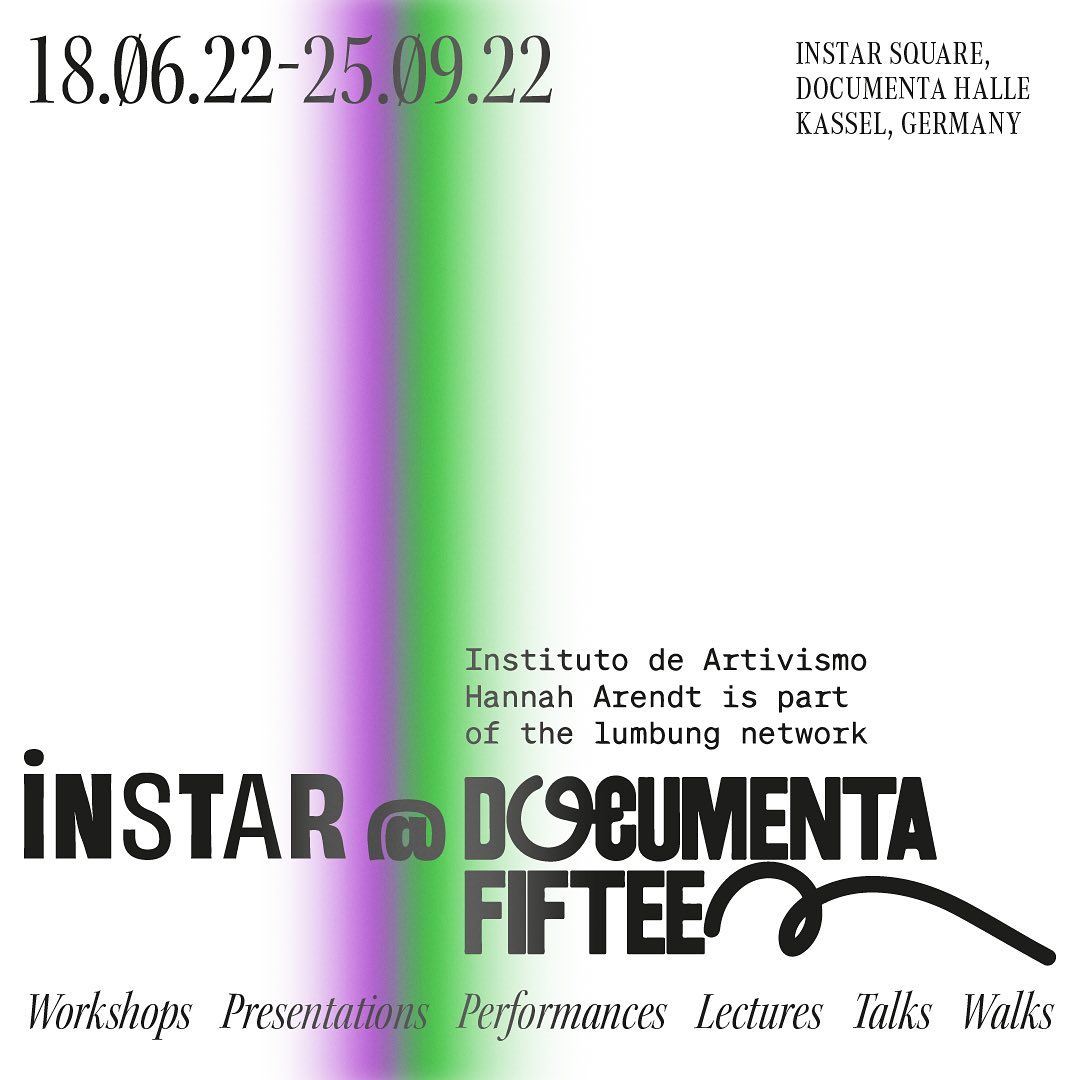 In the past months I have been invited for a chat about Arte Útil by Dania Shahkhan and Maha Minhaj who run Poiesis Social Art platform and by Stephanie Drawdy for her Warfare of Art & Law podcast series. Episodes are available here, enjoy!
|
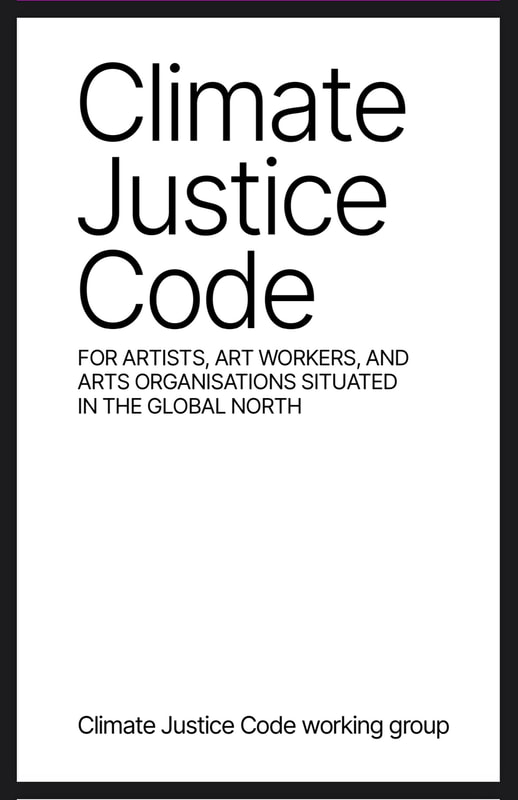
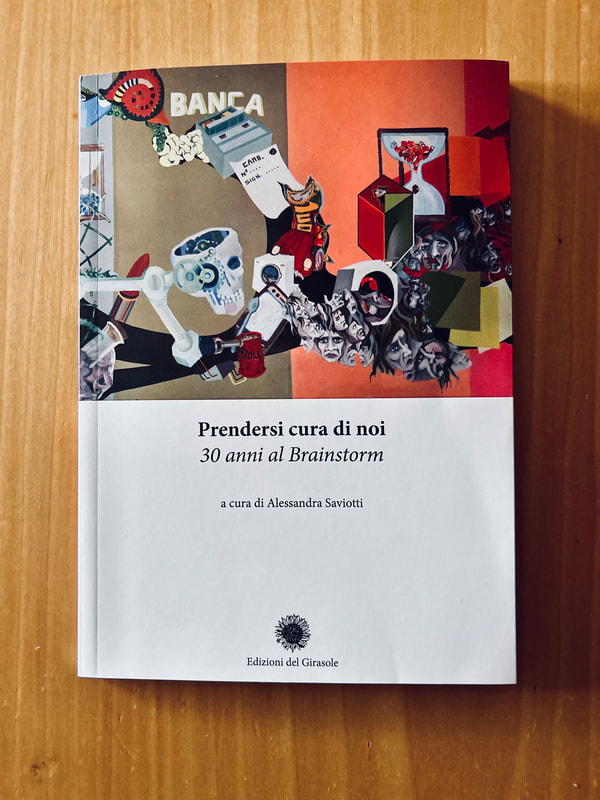
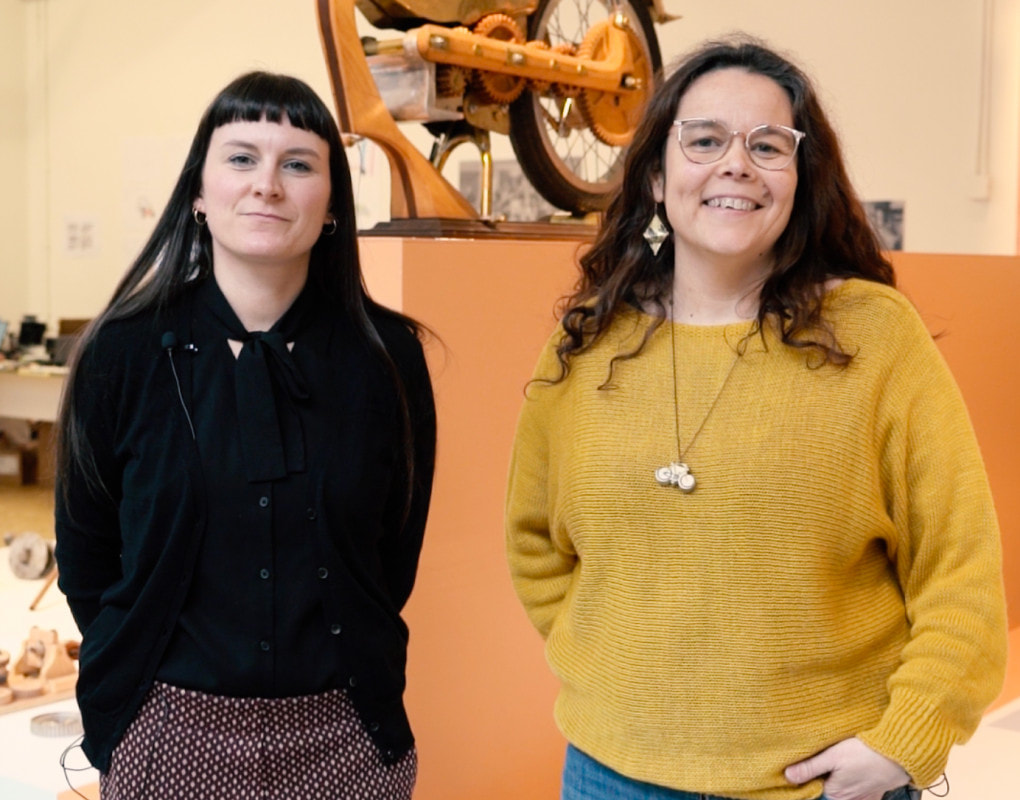
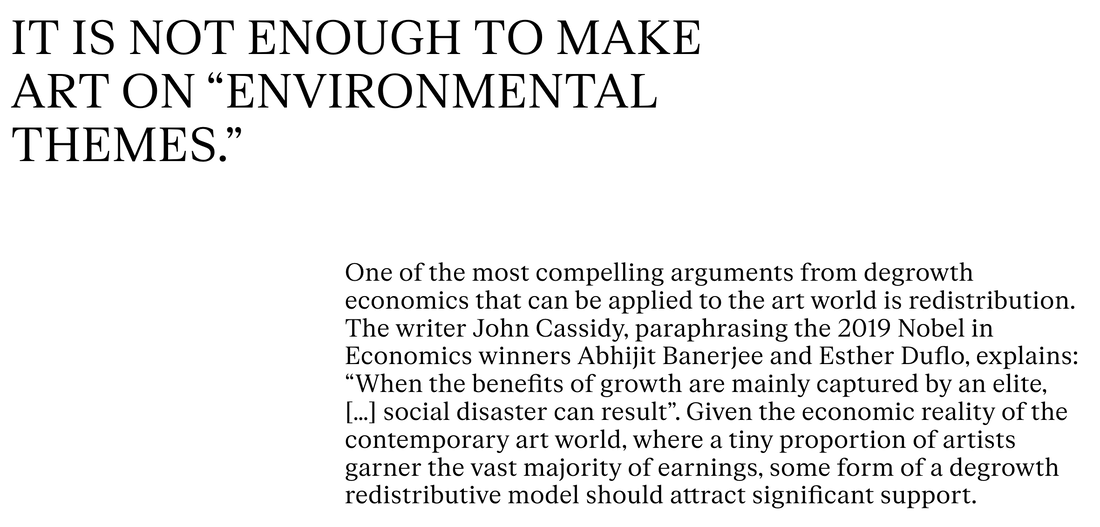
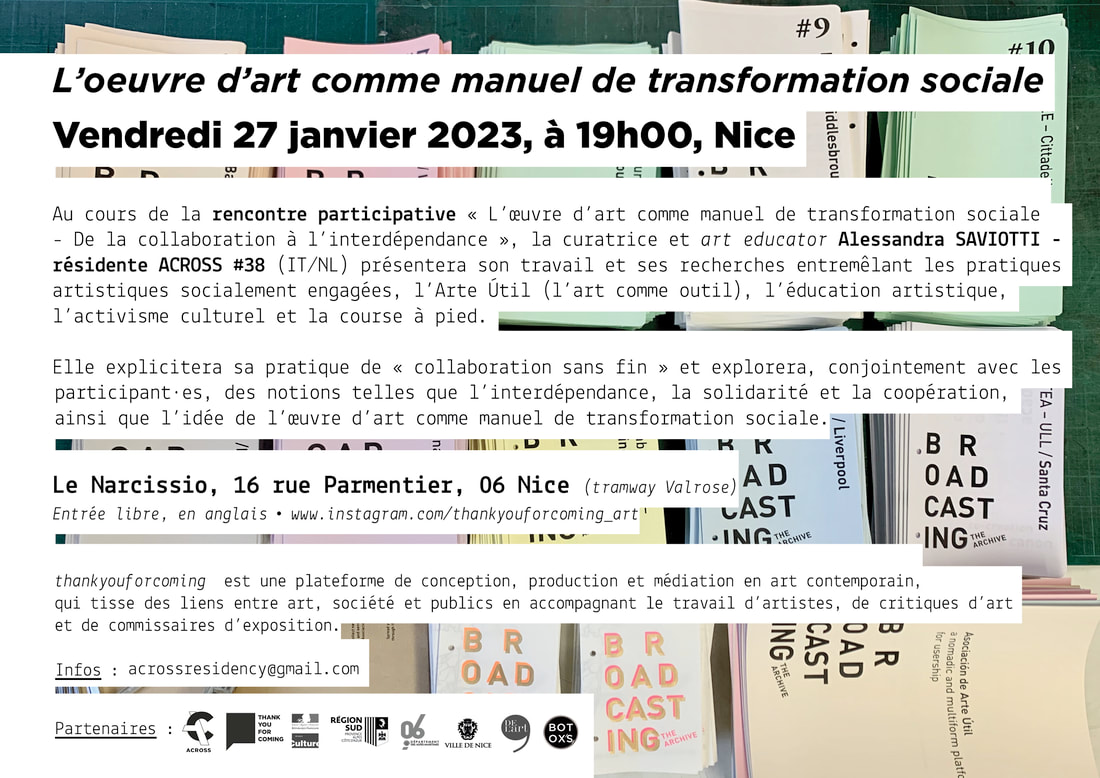
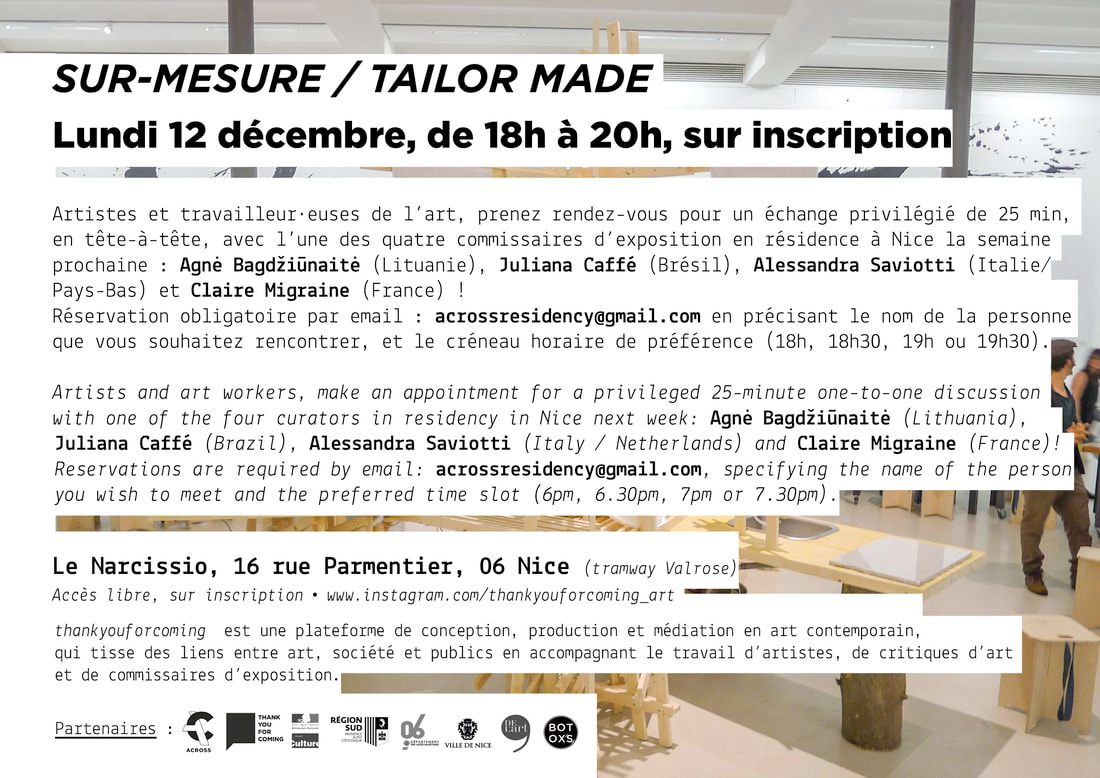
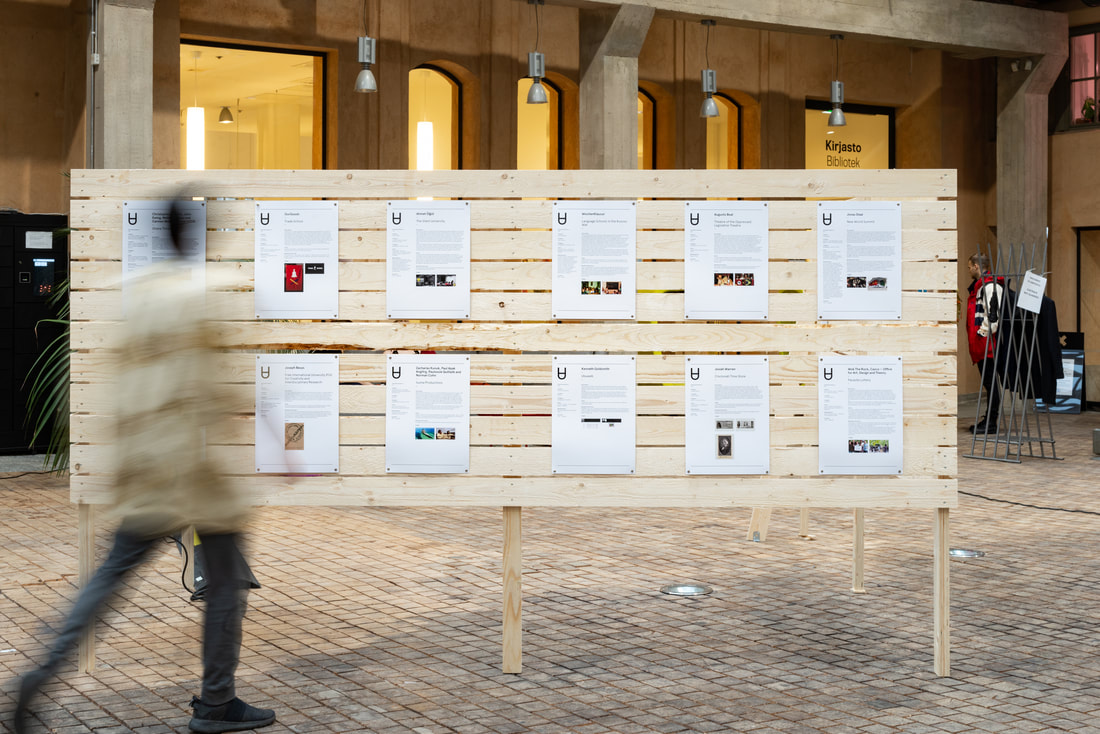
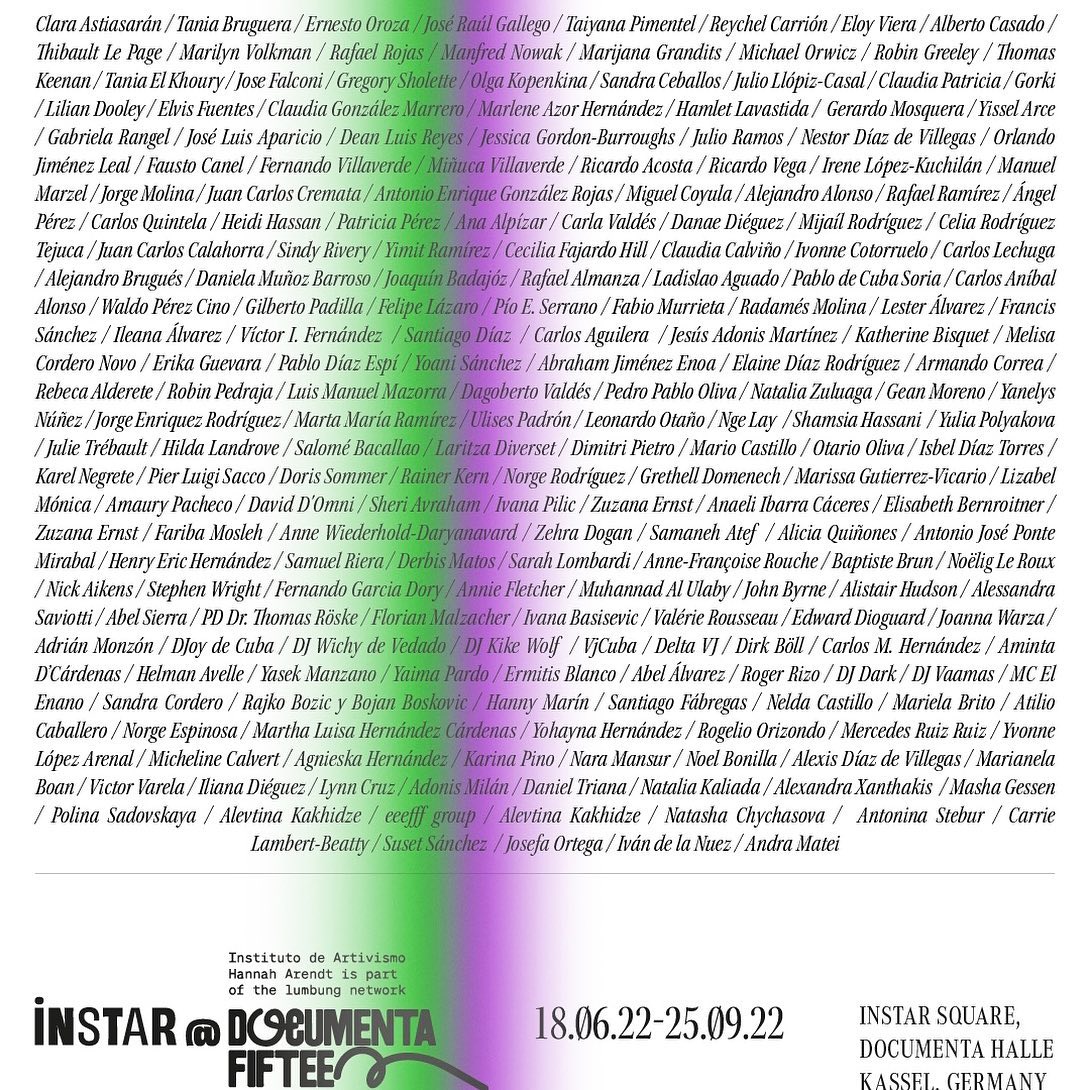
 RSS Feed
RSS Feed